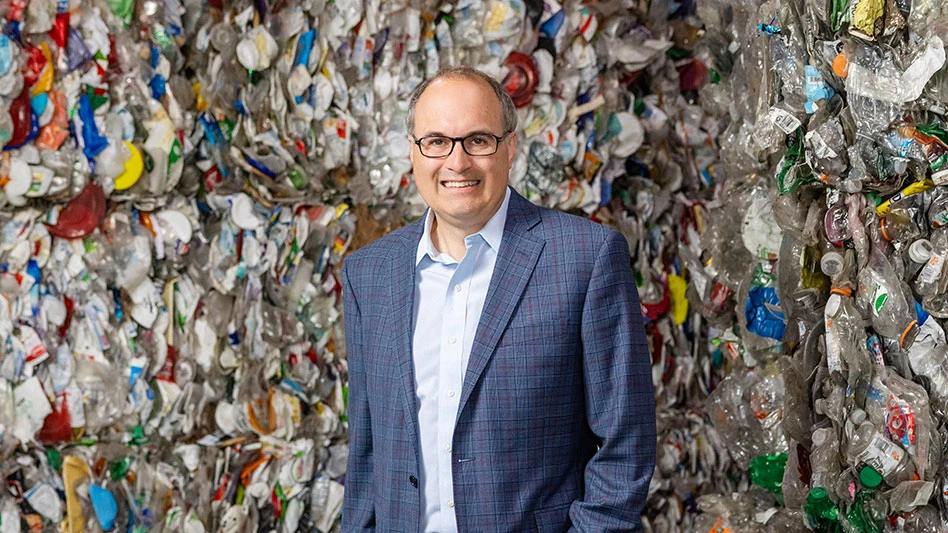
Photo courtesy of Mack Trucks
Mack Trucks, Greensboro, North Carolina, recently delivered its Mack LR Electric Class 8 refuse vehicle to Boca Raton, Florida-based Coastal Waste & Recycling. Mack says the vehicle is the waste firm's first electric refuse truck.
The company celebrated the event at its facility in Pompano Beach, Florida. Representatives from Shippensburg, Pennsylvania-based Volvo Construction Equipment, another Volvo Group company, were in attendance because Coastal Waste & Recycling is also piloting a Volvo CE EC230 Electric 23-ton excavator.
“We are excited to add both pieces of equipment to our fleet,” Coastal Waste & Recycling CEO Brendon Pantano says. “As the first private hauler in Florida to invest in electric, we look forward to harnessing the strength of this strategic move to further elevate innovation in our operations.”
The Mack LR Electric truck will operate in residential and certain specialized commercial applications in southern Florida, and the excavator will work at the Pompano Beach material recovery facility (MRF). The EC230 Electric is a medium-sized excavator, which Coastal Waste & Recycling says is designed to offer the same performance as its diesel counterpart, while the LR Electric is a heavy-duty truck comparable to diesel-powered Mack LR refuse models.
“Mack is proud to be partnering with Coastal Waste & Recycling in their journey toward electrification,” says Jonathan Randall, president of Mack Trucks North America. “Coastal’s commitment to sustainability is evident through their efforts to bring battery-electric vehicles to serve their customers in southern Florida, and we appreciate their enthusiasm for reducing GHG [greenhouse gas] emissions and environmental care.”
The Mack LR Electric offers a 376-kilowatt-hour total battery capacity for 42 percent more energy and increased range between vehicle charges, Mack says. Four nickel manganese cobalt oxide (NMC) lithium-ion batteries power the vehicle and all onboard accessories through 12-, 24- and 600-volt circuits. The two-stage regenerative braking system helps recapture energy from the stops the vehicle makes each day.
Coastal Waste & Recycling says the difference between electric and diesel excavators is lower noise and zero emissions. The EC230 Electric is estimated to achieve a 60 percent to 70 percent reduction in energy running costs compared with Volvo’s EC220 model.
“The shift to off-road electrification, especially in heavy construction machines, can’t be accomplished by one single team or company,” says Scott Young, head of region North America at Volvo CE. “We’re grateful for the chance to partner with customers and other Volvo Group companies to advance sustainability in a variety of industries.”





